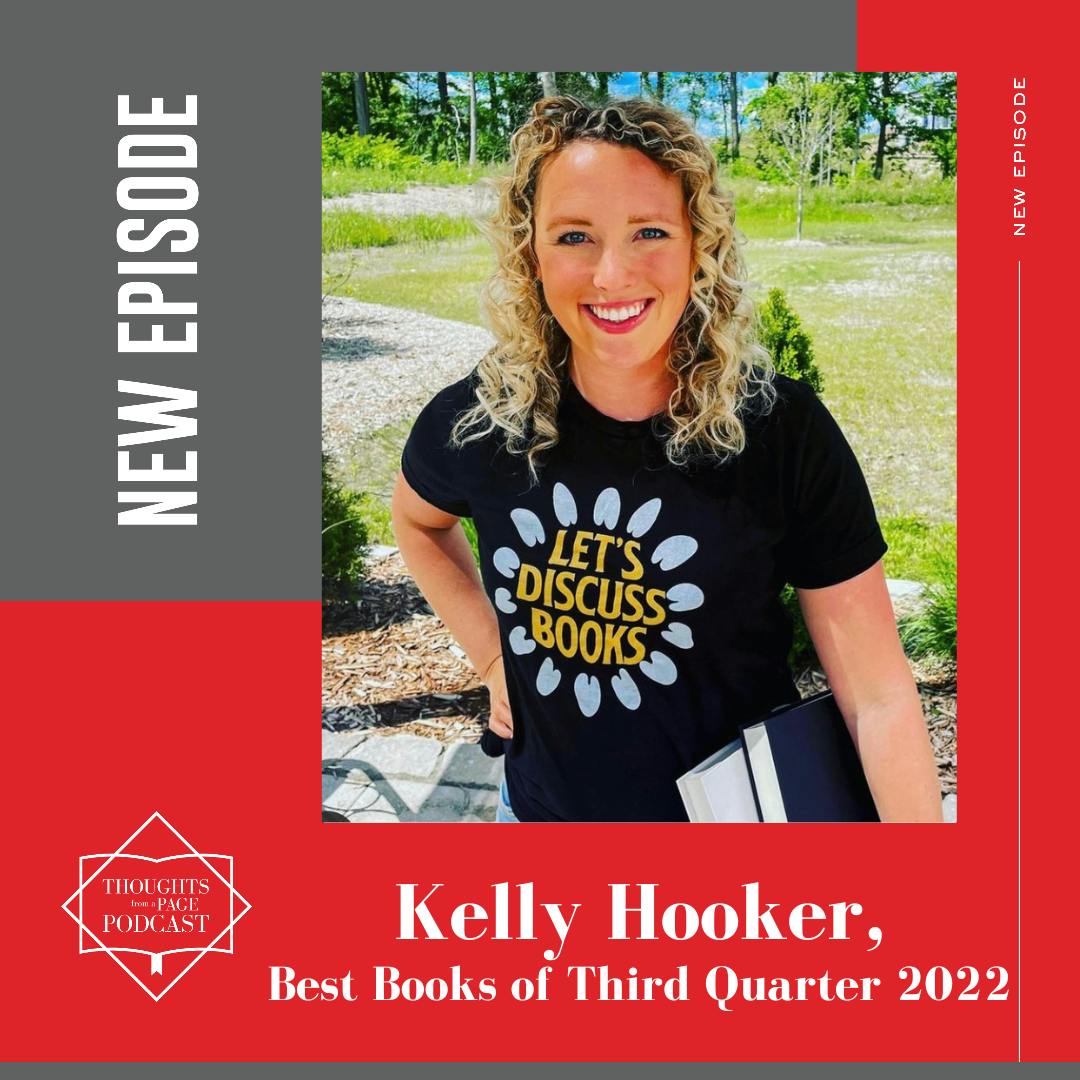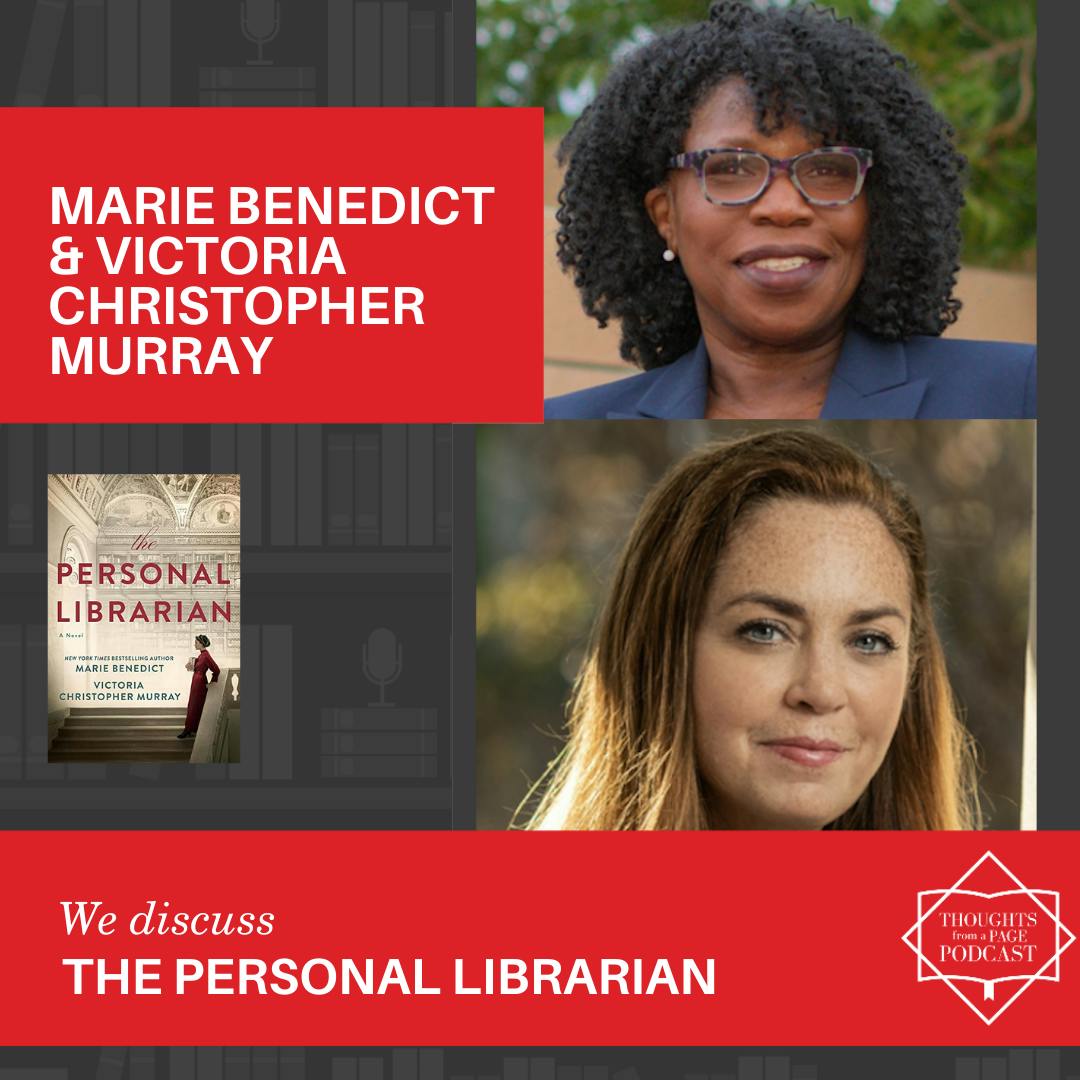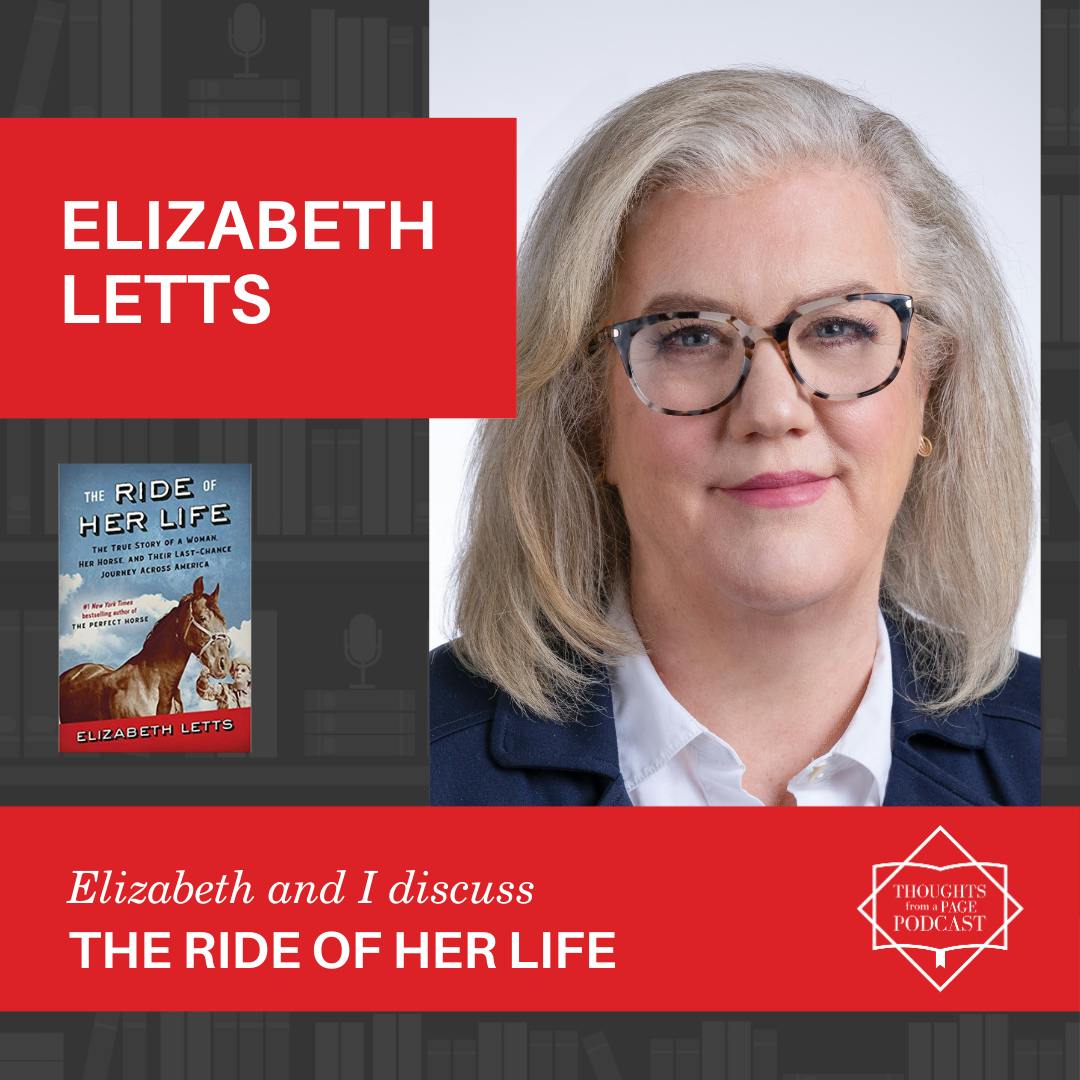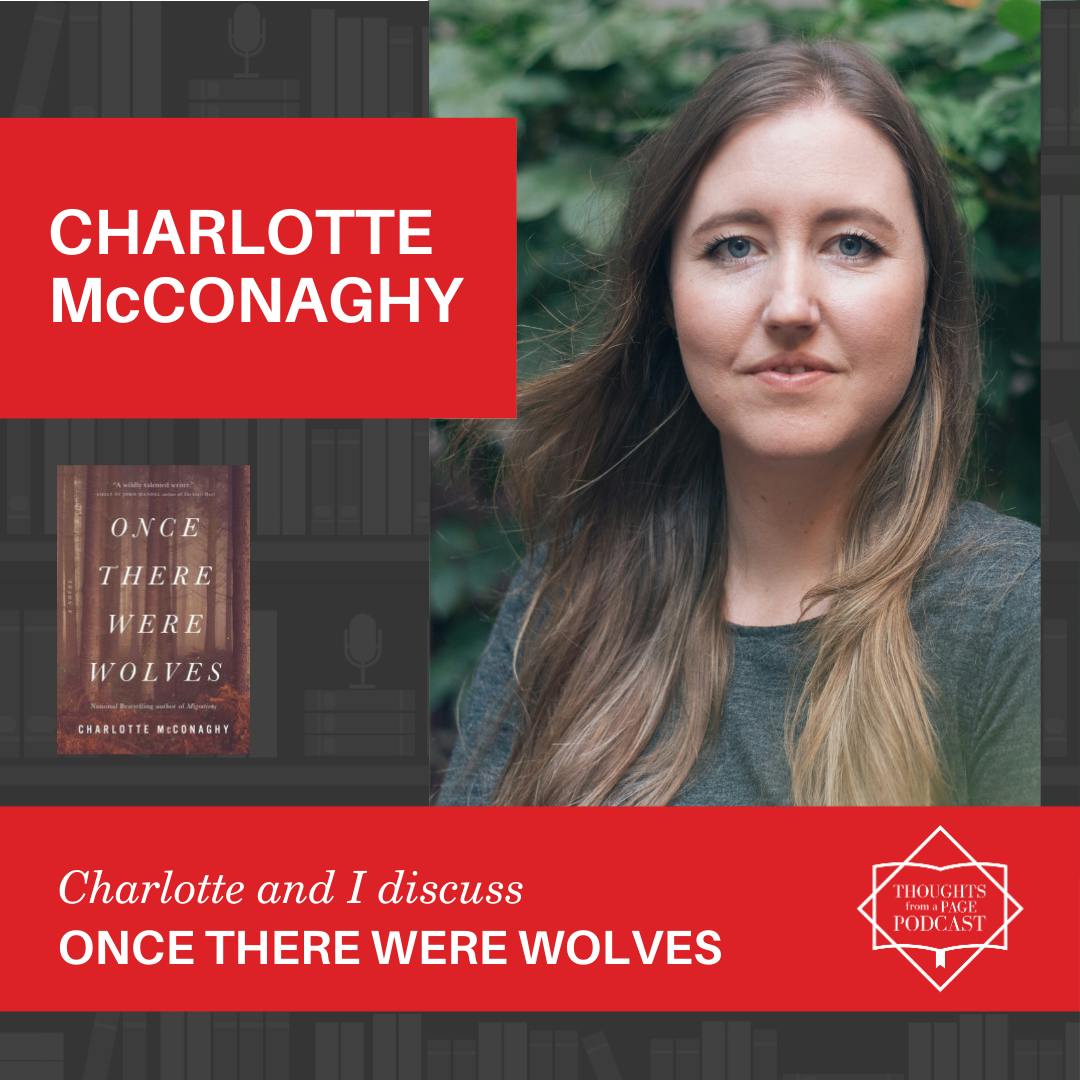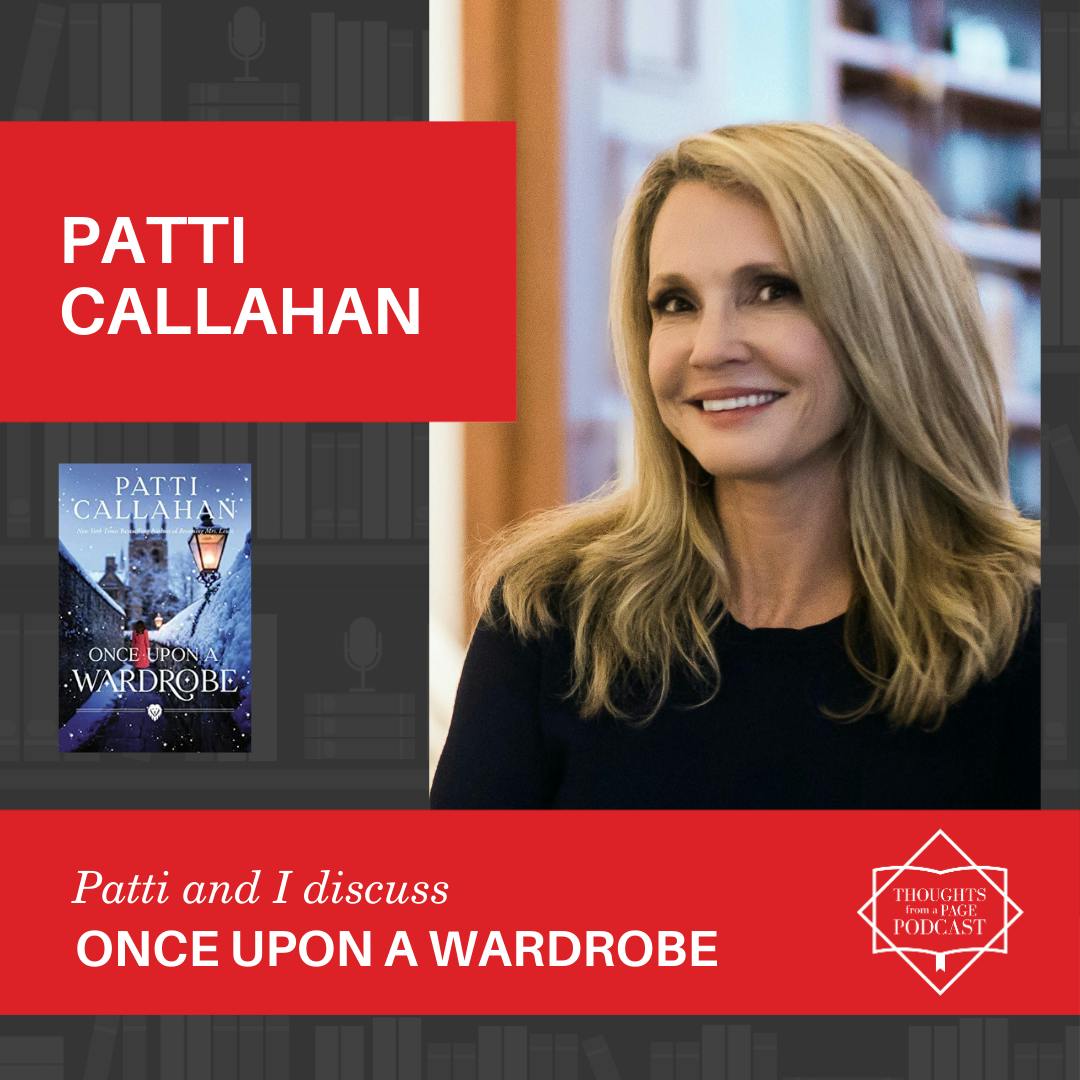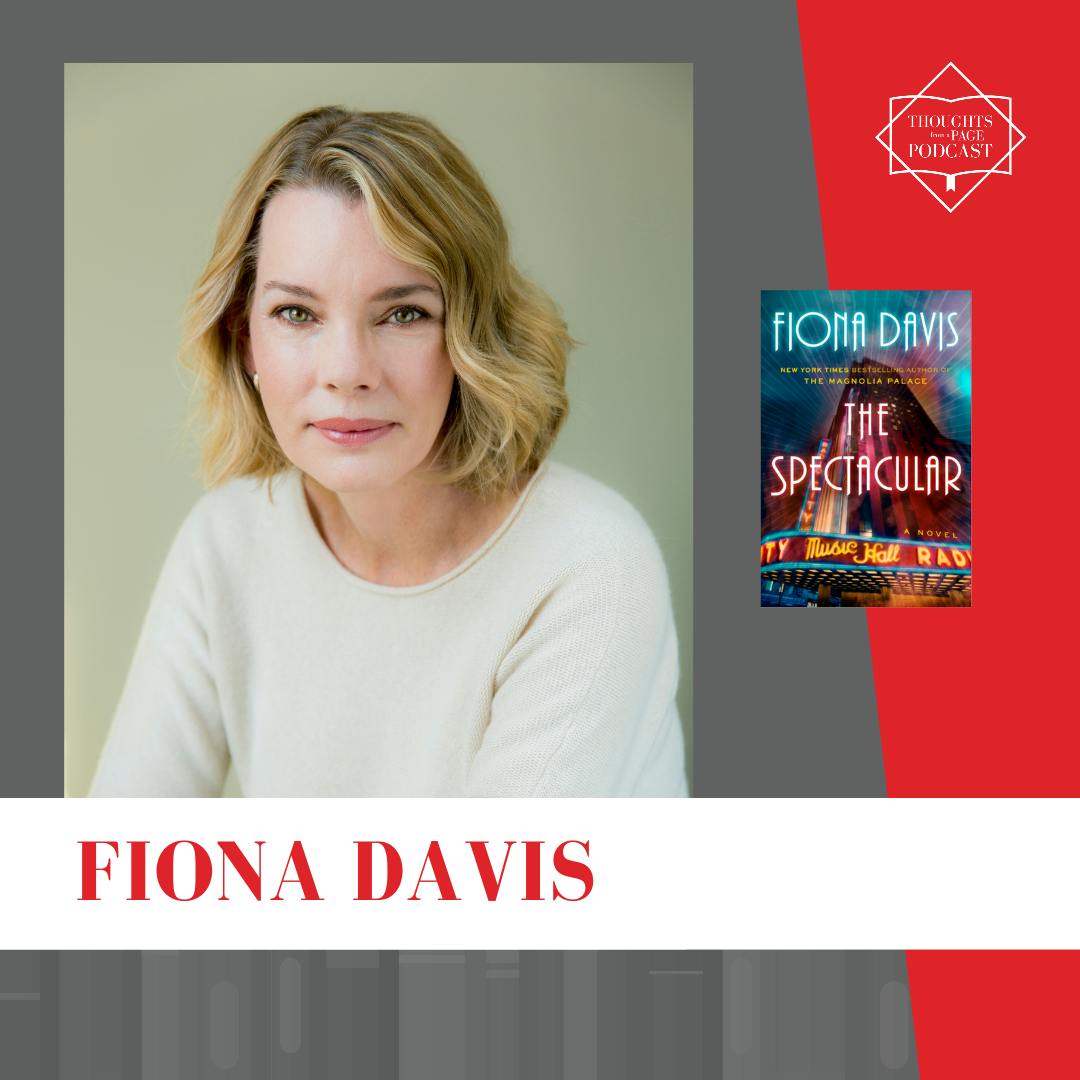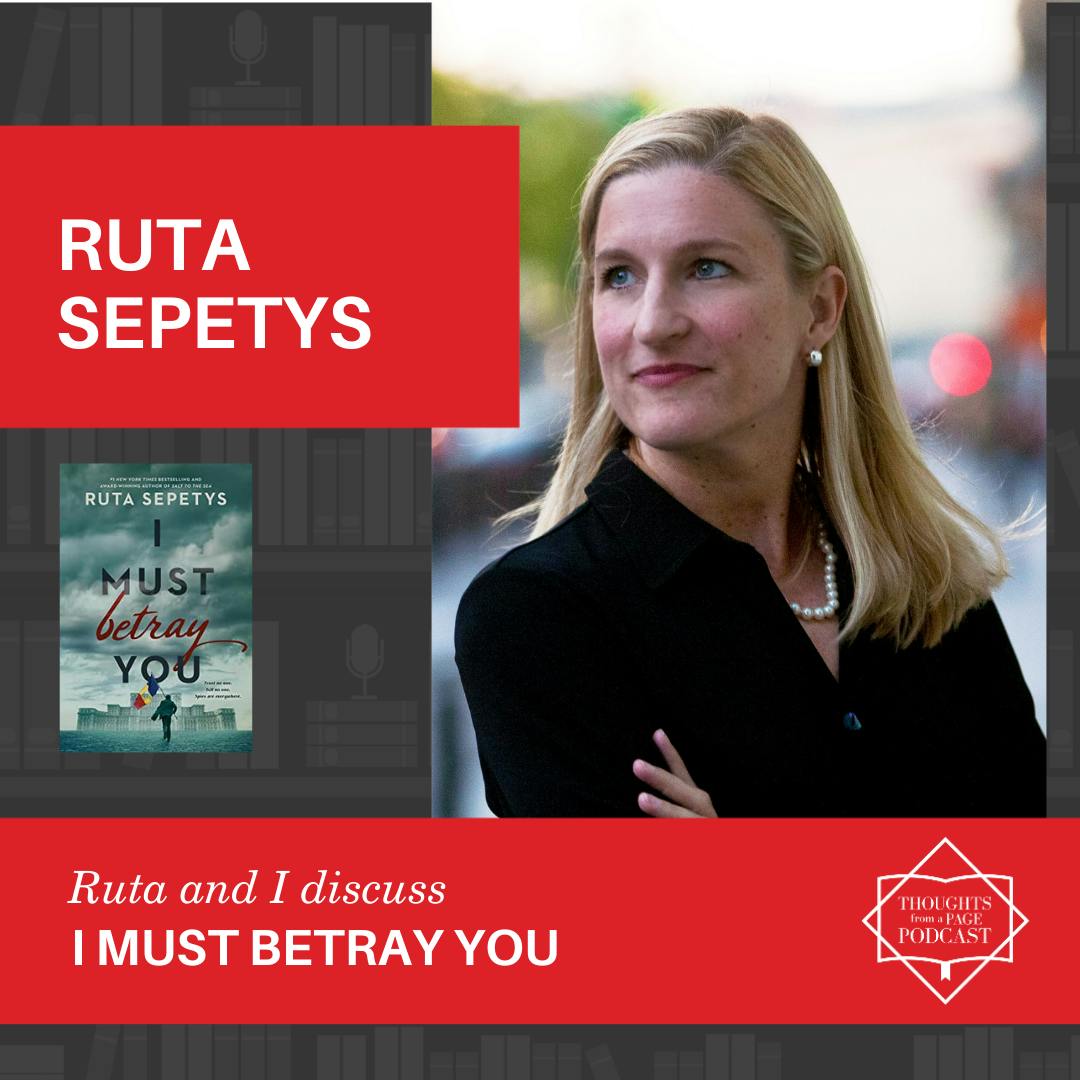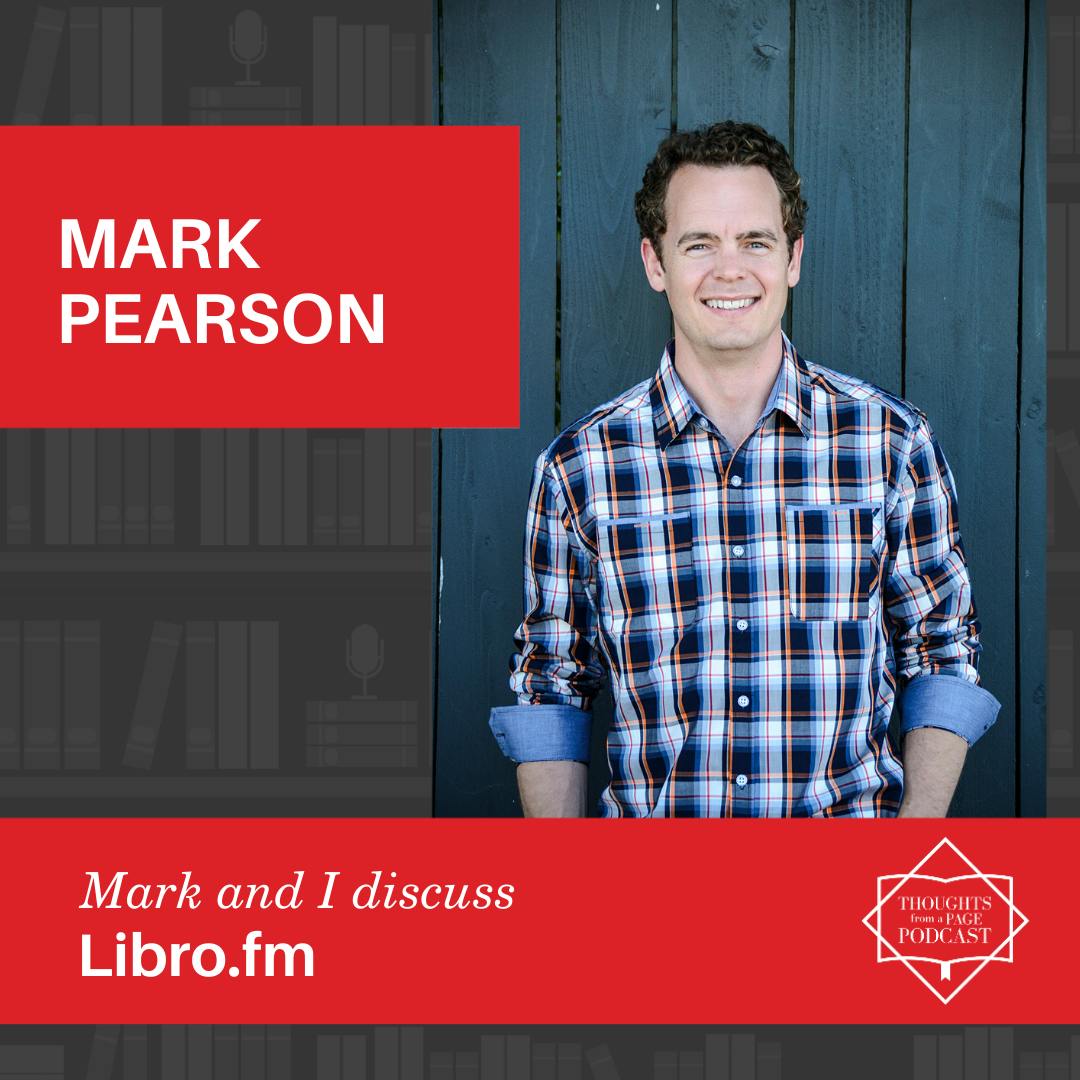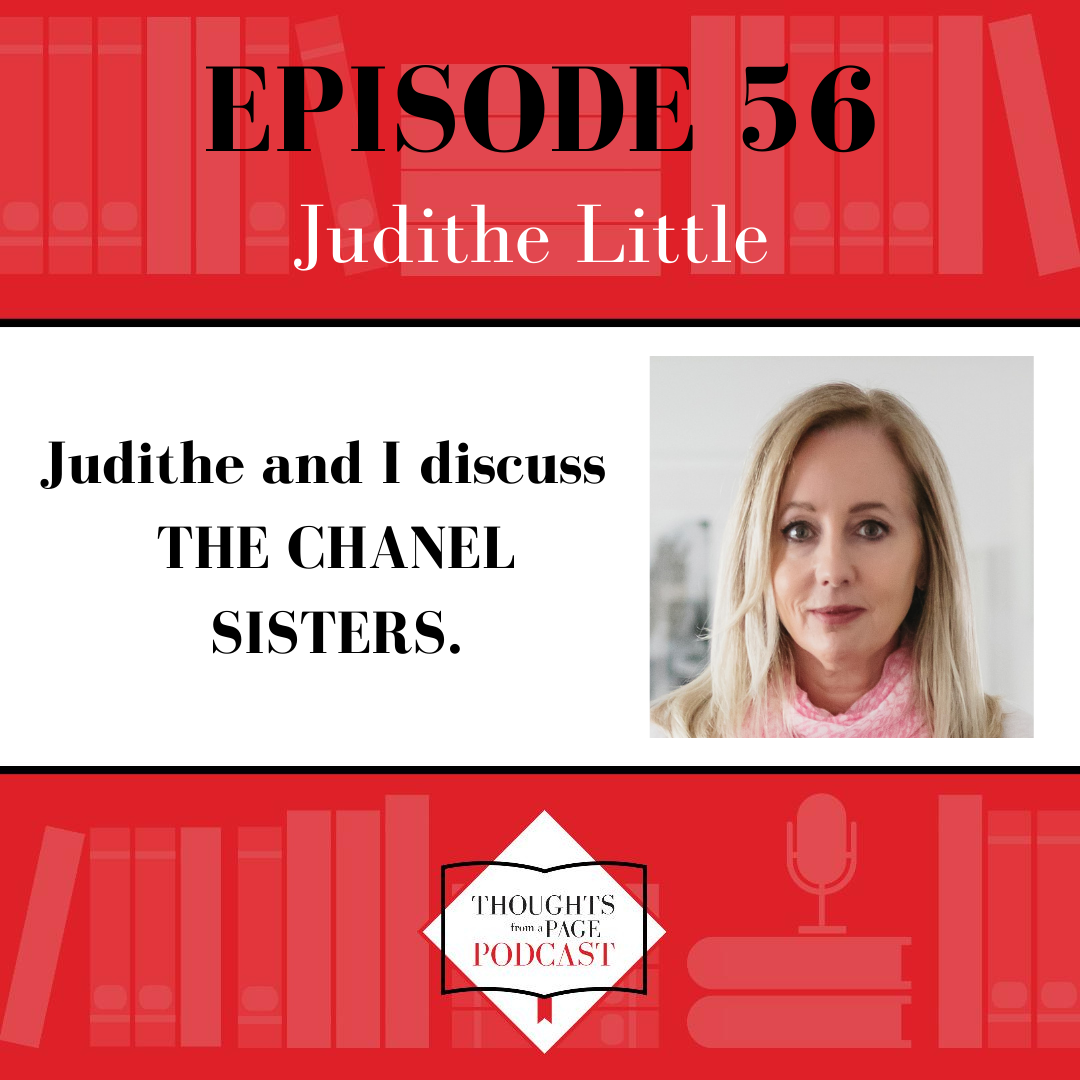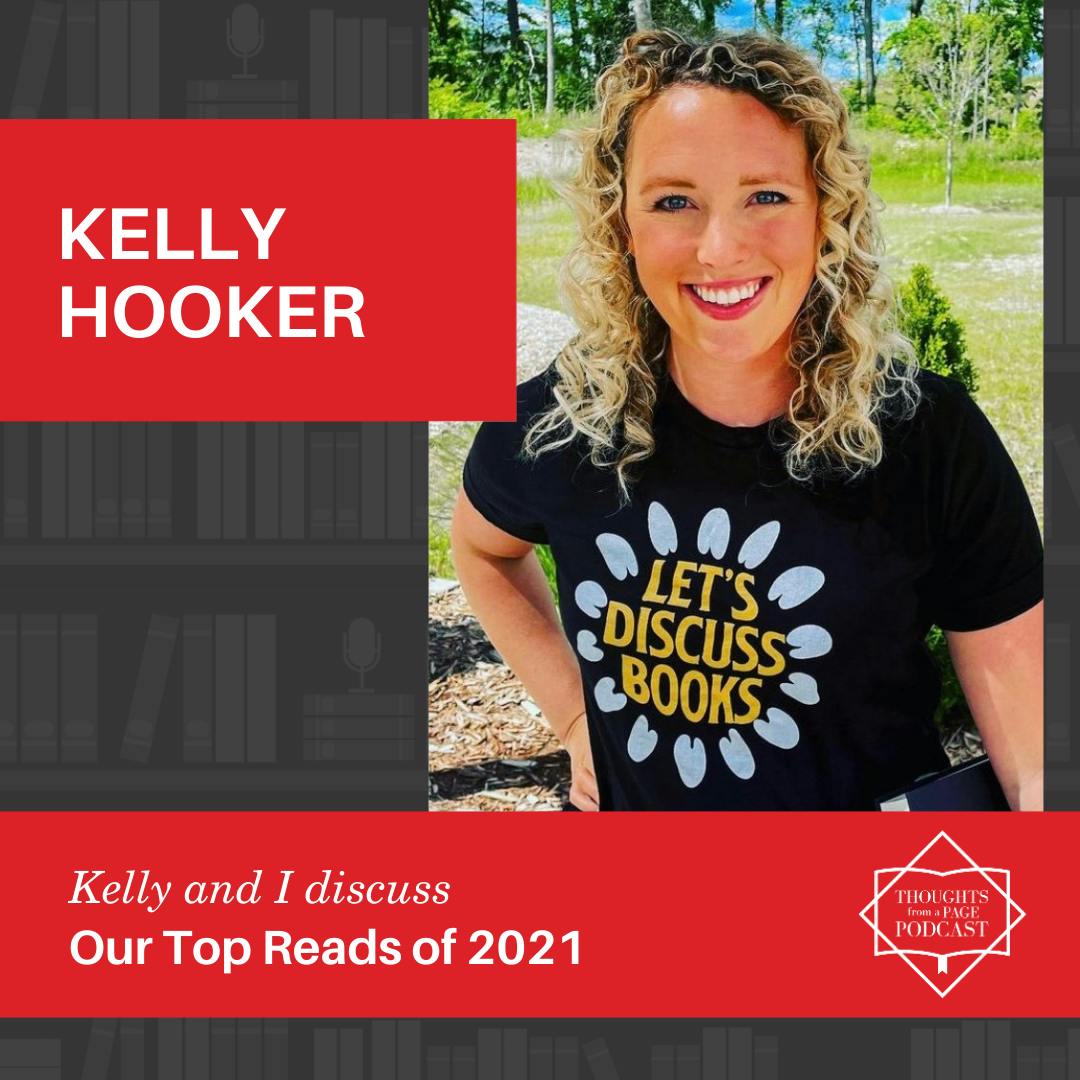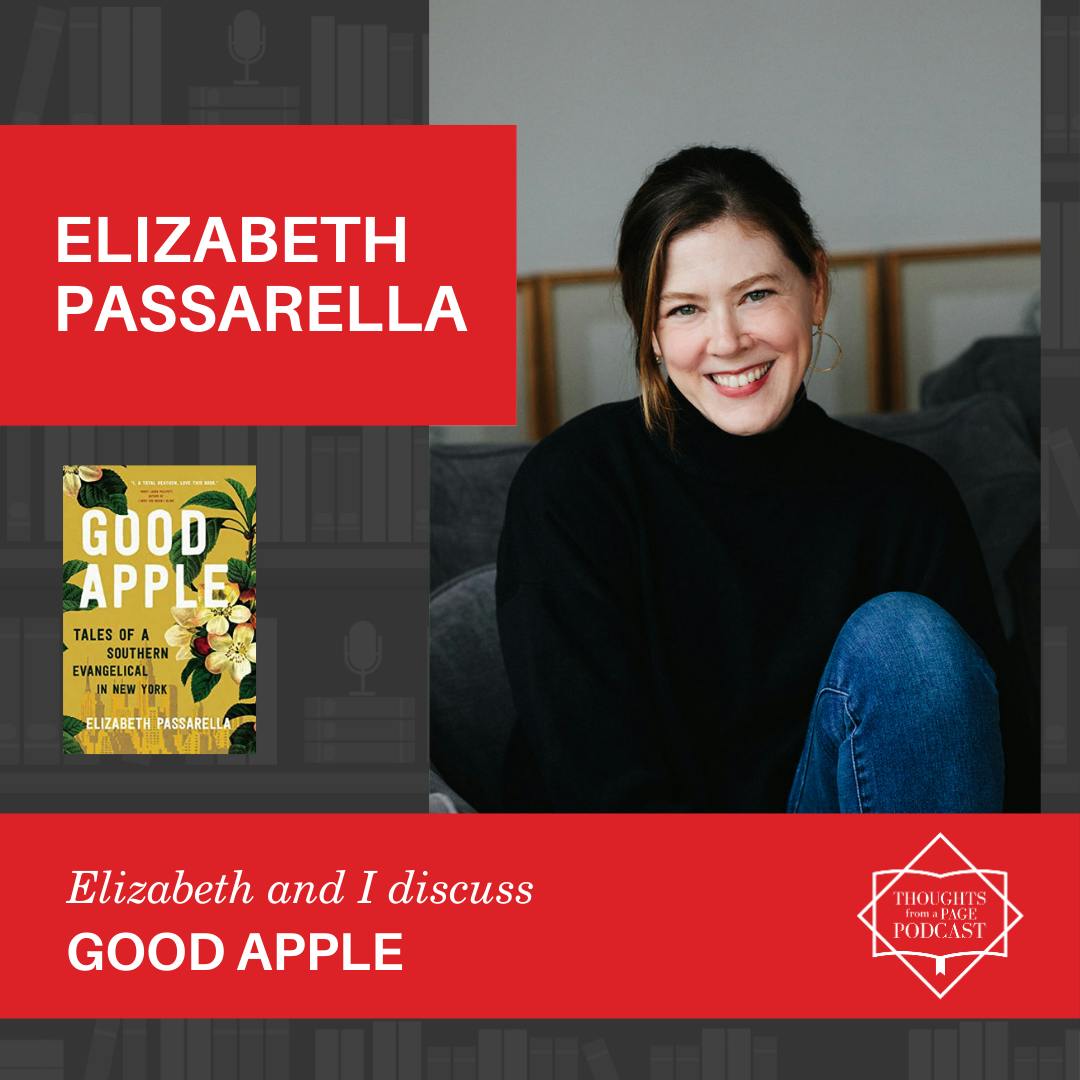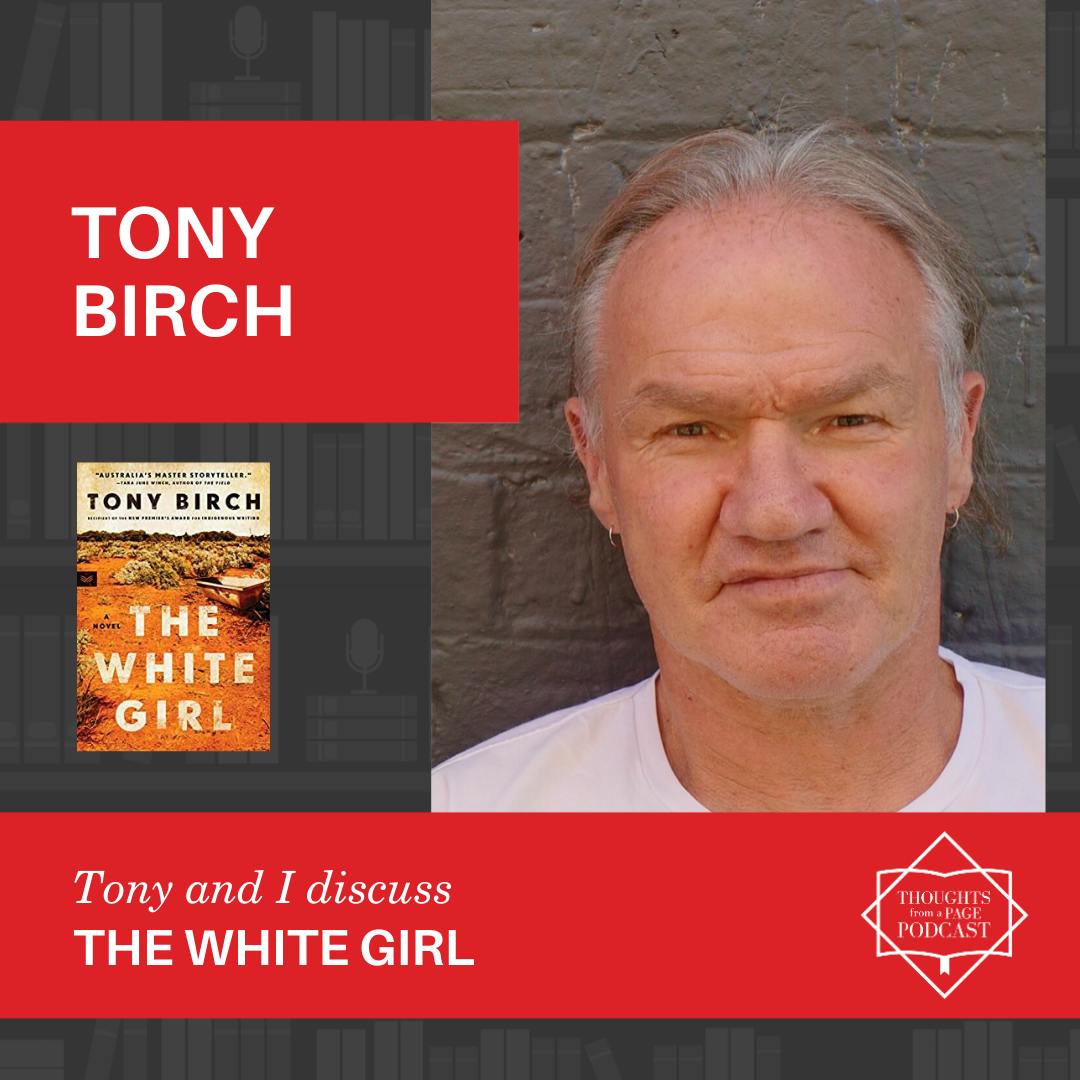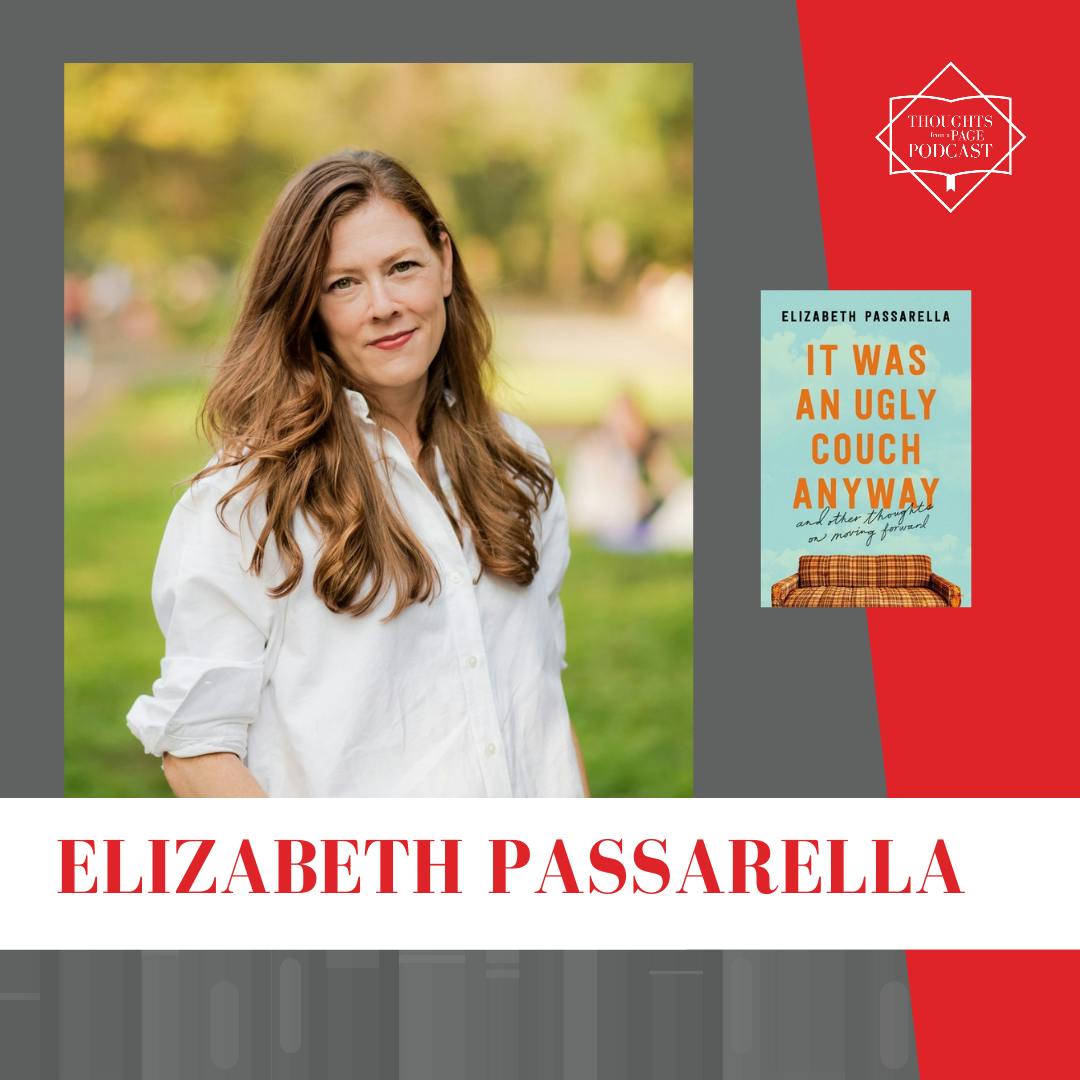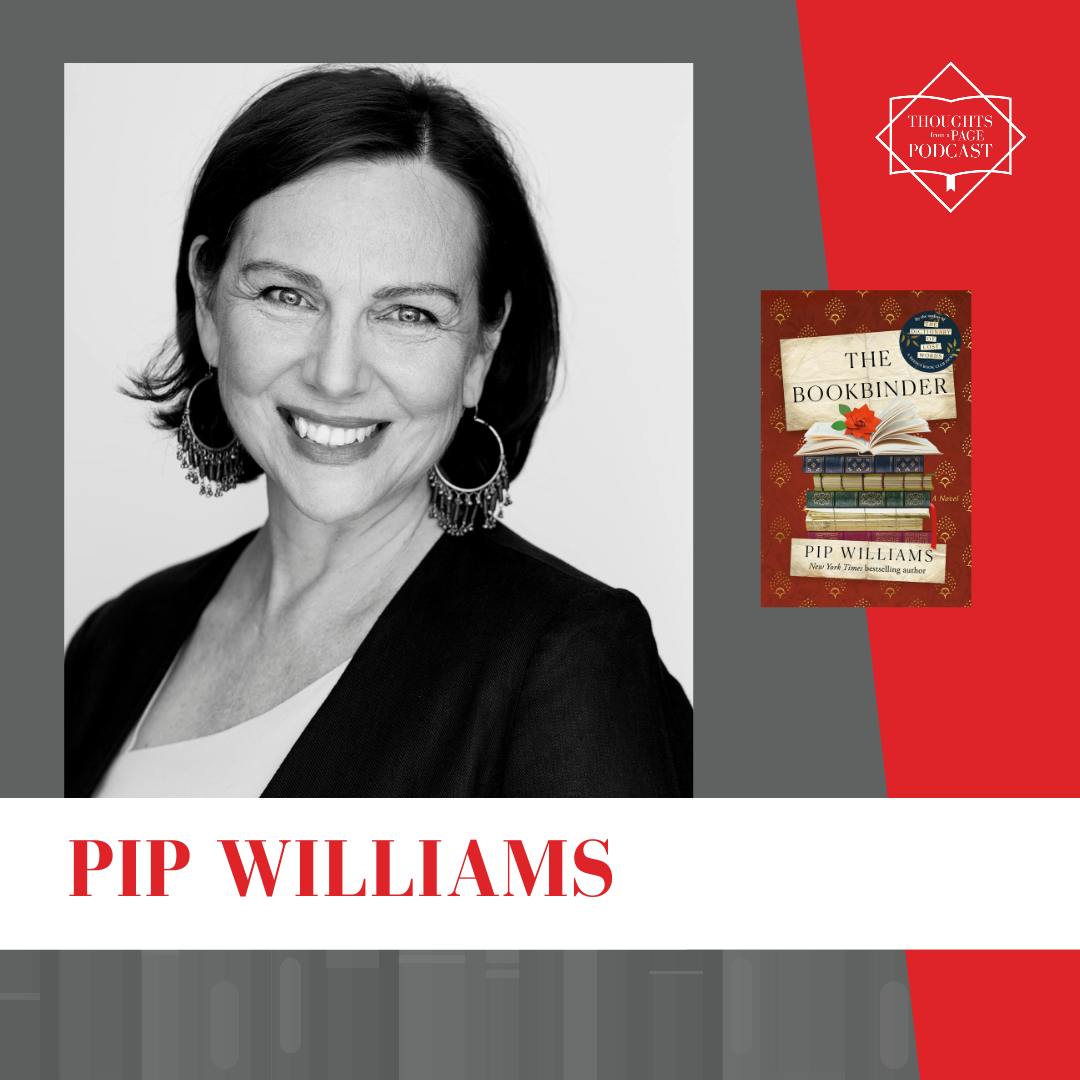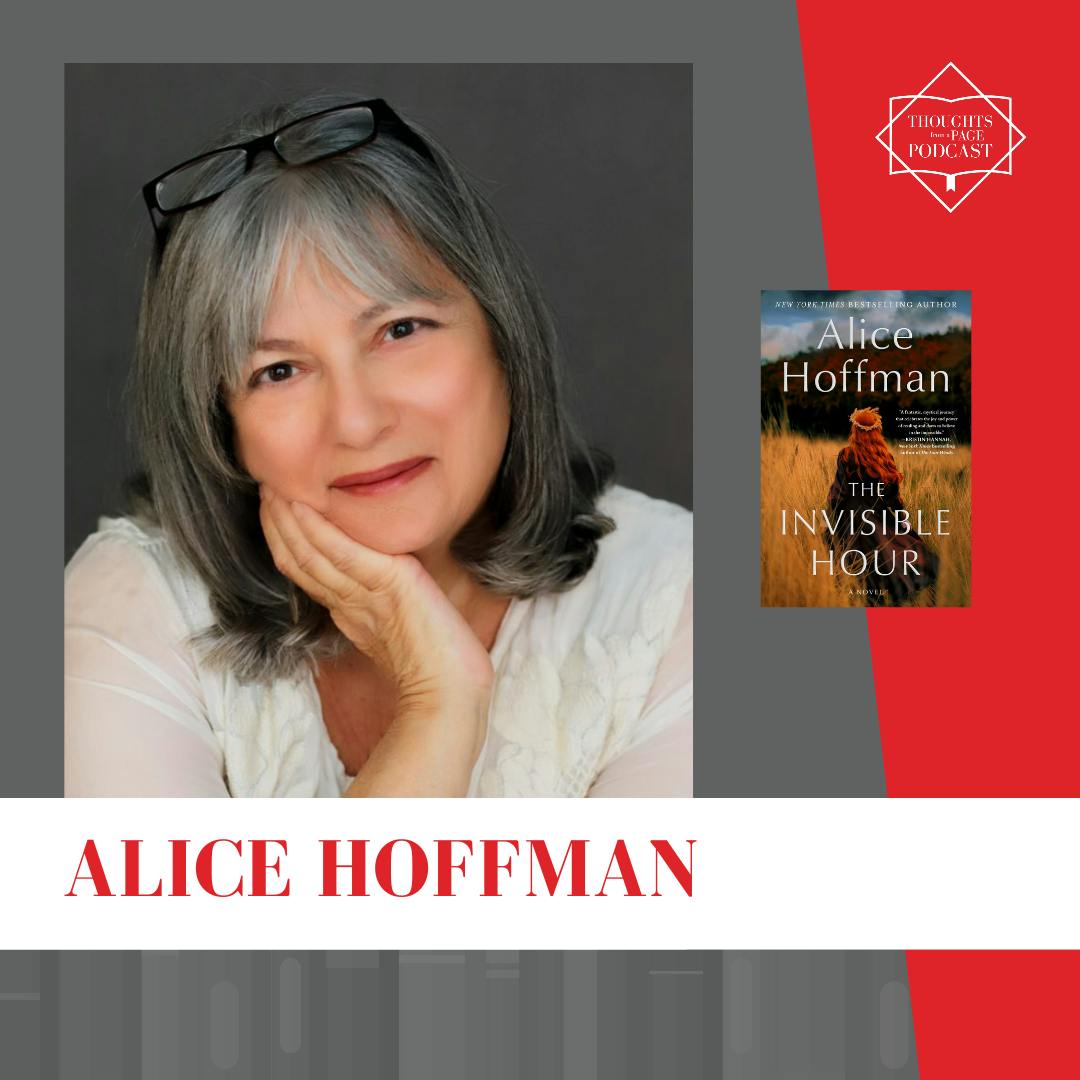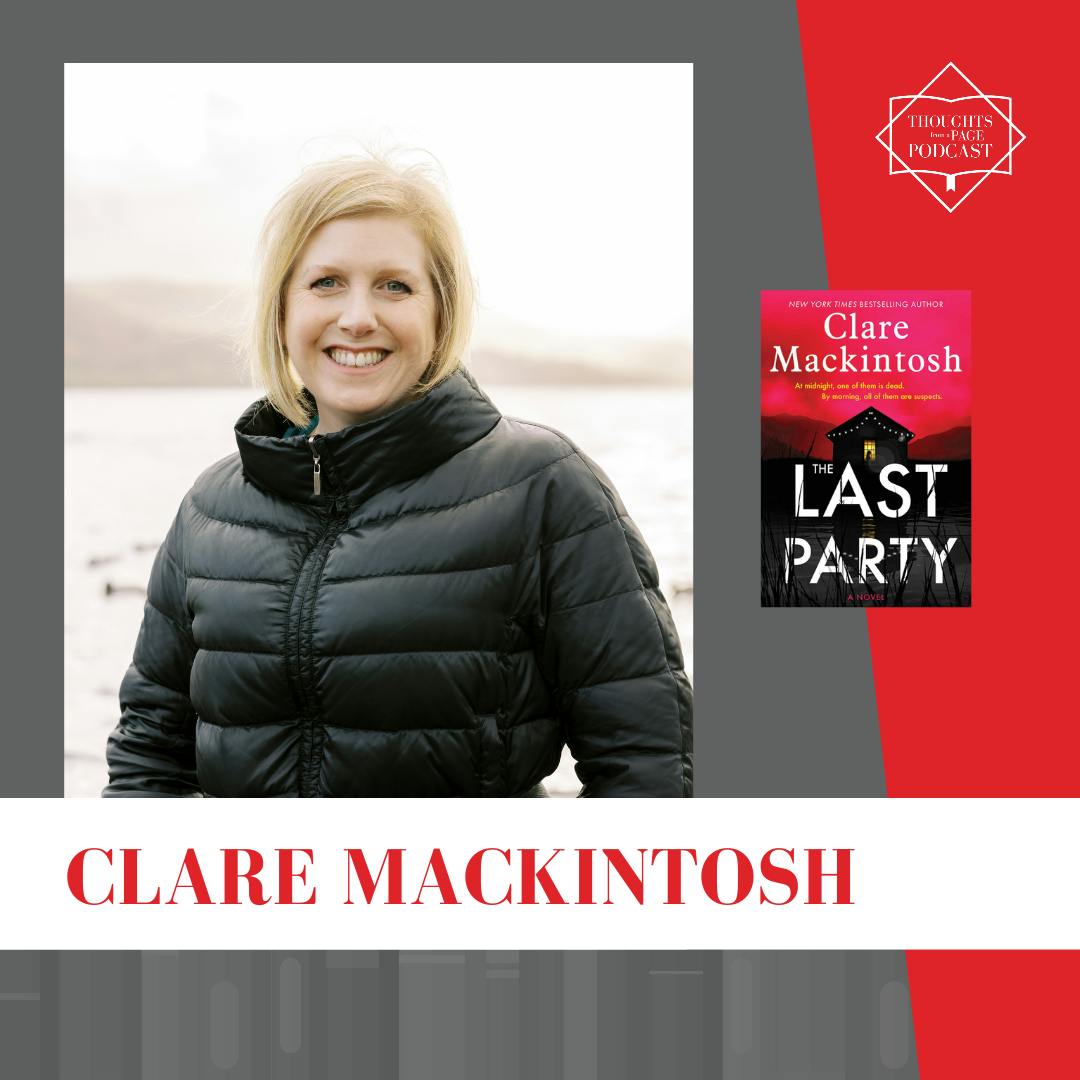
In this interview, Clare and I discuss The Last Party, setting the book on the border between Wales and England, the increased importance and focus on borders as a result of COVID, living in Wales and writing about it, choosing character names, writing a series versus a standalone novel, and much more.
In this interview, Clare and I discuss The Last Party, setting the book on the border between Wales and England, the increased importance and focus on borders as a result of COVID, living in Wales and writing about it, choosing character names, writing a series versus a standalone novel, and much more.
Clare’s recommended read is Bleeding Heart Yard by Elly Griffiths.
Support the podcast by becoming a Page Turner on Patreon. Other ways to support the podcast can be found here.
If you enjoyed this episode and want to listen to more episodes, try Peng Shepherd, Lucy Clarke, Katherine St. John, Joey Hartstone, and Robert Crais.
The Last Party can be purchased at my Bookshop storefront.
Connect with me on Instagram, Facebook, and Twitter.
Learn more about your ad choices. Visit megaphone.fm/adchoices
[00:11] Cindy: You are listening to the Thoughts From a Page podcast, which is a member of the Evergreen Podcasts Network. My name is Cindy Burnett, and I love to talk about books with anyone and everyone. While listening to my podcast, you will hear author interviews, behind the scenes conversations about various aspects of the publishing world, themed discussions with other book lovers and more. For more book recommendations and a complete list of all of my interviews, check out my website, Thoughtsfromapage.com and follow me on Facebook and Instagram at @thoughtsfromapage. In 2022, I would love for you to join my Patreon group. I offer at least two bonus episodes a month and a monthly advanced read and pre-publication author chat. For those on Facebook, I host a special Patreon Facebook group where we all chat books. Thanks so much to those who already participate, and I hope you will consider joining us today. Clare Mackintosh joins me again, this time to chat about her new book, The Last Party. With over 2 million copies of her book sold worldwide, Clare is the multi award winning author of I Let You Go, which was a New York Times bestseller. Clare's subsequent novels, I See You and Let Me Lie were number one bestsellers and After The End was published in 2019 and became an instant Sunday Times bestseller. In 2021, Hostage flew straight into the top ten. Together, her books have been translated into 40 languages and spent more than 60 weeks in the Sunday Times bestseller list. I hope you enjoy our conversation. Welcome, Clare. How are you today?
[01:40] Clare: I'm really well, thank you. How are you?
[01:43] Cindy: I'm really well as well, and I'm so glad you're here to join me again because I loved our conversation about Hostage, and I can't wait to talk about The Last Party.
[01:51] Clare: Thank you. It was so much fun talking about flights and all things plane related. And now we're zooming across to Wales.
[01:59] Cindy: For The Last Party, which I thought was just fantastic. I'm not sure I've ever read a book set in Wales, and that was one of the things that I liked so much about the story.
[02:09] Clare: Thank you. I don't read an awful lot of novels set in Wales. There's a lot of Scottish crime and a lot of Irish crime, and I just felt that this was a location that could really speak to people and engage readers. And, of course, every author I know has their lockdown book, and this is mine. And I suppose that fed into the book in lots of ways, which I'm sure we'll talk about.
[02:38] Cindy: Absolutely. Well, before we dive into all of that, why don't you give me a quick synopsis of The Last Party for those that won't have read it yet?
[02:45] Clare: Sure. The Last Party is essentially a classic murder mystery with a contemporary edge. It's set in North Wales, in a fictional part of North Wales, where the border between England and Wales runs right through the middle of a lake. And on the Welsh side of the lake is a very small rural village, the sort of place where everybody knows everybody, and that's where our Detective Constable Ffion Morgan is from. And on the English side of the lake is a luxury holiday resort of log cabins, decks stretching out over the water, full of incredibly rich English people. Behaving atrociously on New Year's Eve. There's a big party. It's kind of meant to build some bridges between the two communities because there are lots of tensions between the two sides and it's all fine until someone's murdered. And on New Year's Day, when the Welsh locals are going into the lake for their traditional New Year's Day swim, a body floats through the mist from the English side to the Welsh side, and that kickstarts a cross border investigation.
[04:00] Cindy: So is that a Welsh tradition, to walk into the freezing water on New Year's Day?
[04:05] Clare: I don't know if it's Welsh people do it all over the place. I don't know about other countries, but in the UK it's relatively common to see a Christmas Day swim, perhaps if you live near the sea or by a lake. And I'm a really keen open water swimmer and I particularly love cold water swimming. And I suppose about five years ago we had family staying with us for New Year, and on New Year's Day I got a group of people together, maybe I guess there were ten or twelve of us, and we had a short but fun exhilarating swim to welcome in the new year. And now we have about 100 people who come each year and we raise some money for the mountain rescue team. And it's just a really brilliant way of seeing in the, you know, of welcoming the new year and feeling really sort of, I don't know, like energized, I suppose. And three years ago, I guess it was New Year's Day, and we were all waiting to go into the water. So I live in a town with a big lake and it's very beautiful. There are mountains all around it. And so if you can imagine this very cold, crisp, clear day where the mountains are sort of reflected in the water, and there's just this kind of gentle mist that's sitting right on top of the surface of the water, and everyone around me was saying, oh, this is so beautiful. What a stunning place to welcome the New year. Aren't we lucky? And I wasn't thinking that, I was thinking, what if a body floated through the water now? Like, what would happen? How would people react? Where's this body come from? Because this is how the mind of a crime writer and former police officer works. So I went home after the swim and I was thinking about this body and thinking, so where did it come from? Well, it came from the other side of the lake, okay, so what's on the other side of the lake? And we then went into this awful pandemic. So I guess this would have been New Year's Day 2020, so two years ago. And then we went into lockdown and borders became really, really important because you couldn't cross a border or there were laws that were different on one side of a border to the other. And that then cemented the theme of this book. And I thought, okay, that's what's in the middle of this lake? It's a border. It's a border between England and Wales.
[06:40] Cindy: Well, you just preempted my next question, which is why you decided to focus on a border. And that does make perfect sense with the pandemic, because you're right, I mean, borders became so much more important and a focal point for a lot of us that it hadn't been before.
[06:54] Clare: They also I think for me, it sort of represented a division. And that divide in The Last Party is a country border, but it's also a division between the wealthy and the not so wealthy. It's also a division between people who live in a village year round and people who come for the weekend to stay in their holiday home. It represents a division between the type of detective that Fiona is and the type of detective that her English counterpart is. So there are lots of ways that I think that that border is represented in the book and indeed in life.
[07:34] Cindy: I think that's exactly right. And I want to talk more about Ffion and Leo in a minute, but I wanted to ask you a little bit more about writing about Wales. You lived there. Was it so much fun to bring in some of the traditions, the language, the culture into this book?
[07:51] Clare: It was. It really was. So I'm not Welsh, I'm an English incomer. And so a lot of the themes that I explored in this book, I'm very much living. We moved here six years ago and it is a Welsh speaking area. So that isn't simply that Welsh is a language that people can speak, it is the language that they speak. So if you walked into someone's home or you walk into a shop, this is what they're speaking. So my children go to a school where all their lessons are delivered in Welsh, and I really wanted, I suppose, to explore how that felt and how that can look from an outsider's point of view. And that meant using the language in the book. And of course, you've got to be quite careful how you do that. It mustn't be too intrusive. I wanted to get the flavor of it, I suppose, to use little snippets of Welsh to remind you, to remind the reader that this is the language that those characters would be speaking. But actually, of course, we're just going to give you a tiny bit in Welsh and then the rest of it is in English. So that you can actually read the book. But that was really fun. And I worked with a Welsh editor to do a kind of a sensitivity read, I suppose, because I'm not Welsh. And so A, I wanted to make sure that the Welsh that I speak, which I normally call Wanglish, a kind of mixture of Welsh in English, that I was actually using an appropriate type of language for that particular. Character because, of course, characters all speak differently. But also to sense check the book and make sure that things like place names that I'd made up were, you know, true to life and that I wasn't misrepresenting a culture, because that was really important to me.
[09:49] Cindy: Absolutely. And it's wonderful that there are so many sensitivity readers and ways to focus on that today.
[09:55] Clare: Oh, I think so. I'm constantly reading angry articles about sensitivity readers and how this is ridiculous and it's all woke this and woke that, and I just don't understand it at all. I use experts for so many things, whether it's to check that my police procedure is still up to date, or maybe in the case of Hostage, my last book, I'm not a Pilot, I needed to speak to pilots to find out how I would go about landing a Boeing Triple Seven. There are so many reasons why I need to speak to experts, and to my mind, that's what a sensitivity reader is. It's an expert in a particular field, be that disability or a particular culture, a particular language, you know, whatever it is, they're an expert. And as authors, we have a responsibility to provide as authentic an experience as possible for the reader. And more than that, we have a responsibility to the community that we're writing about to make sure we've done our due diligence.
[11:02] Cindy: Well, and if you didn't, then you'd have all of these people complaining that it wasn't accurate or authentic or realistic. So, I mean, you can't win there, I think.
[11:11] Clare: No, you can't. And to be honest, you're always going to get the odd complaint anyway. And you have to remember that a community is just that it's made up of lots and lots of people and you're never going to represent everybody's experience. I think what's important is that, you know, you have accurately presented at least one person's experience within that community, and then you can say, hand on heart that you have done everything you could do to make sure you're writing authentically.
[11:43] Cindy: Absolutely. Well, this is the start of a new series, is that correct?
[11:48] Clare: Yes, it is.
[11:49] Cindy: That's exciting.
[11:51] Clare: It is. I didn't know it was going to be a series, and if I had known, I might have done a few things differently. So I never planned to write a series. I've always said that I like standalones. I like the challenge, I suppose, of creating a new world each time. And I like to put my characters through things that can only really happen once. You know, it would be unfair to put a member of the public through, you know, multiple traumas, book after book. And so series only really work where you've got a character who is a law enforcer or a social worker or a doctor or someone who is likely to come into contact with these traumatic cases. And I'd never written a police character that I felt sort of merited a series, I suppose. And then Ffion Morgan walked onto my page and honestly, it was like being held hostage. Ironically, she's the only character I've ever written who accompanies me outside the house, barges her way into the shower with me, sits on my shoulder, tells me what to do next, tells me what she's thinking, what she's doing, argues with me. She is a nightmare to work with, both as a writer and as a fellow police officer. And that coupled with this location that was really coming to life under my fingertips and I felt this was a location that readers would want to come back to. What we've just talked about, the themes of division, of borders, of communities, community tension, that that was something that was rich territory. So I emailed my editor, my UK editor, and I said, I'm only 30,000 words or whatever into this draft, but I think I'm writing a series. And she said, Well, I'll be the judge of that. You can finish the book and then let's discuss it because of course, they have to think commercially about these things. But once I'd finished the book and once my editor read it, she agreed. She said yes. You know, Ffion needs more than one book. And so that's it. I'm writing a series and it's both exciting, but also it's also really challenging. You know, I've got new found respect for long term series writers because I think from the outside I had always thought, oh, this is really sort of easy. They don't have to create a new world each time. They can just sort of pick up the story thread and just focus on the kind of story of the week, as it were. And actually, I'm not finding that at all because of course, you've got your characters who carry on, but you've also got a whole new cast of characters because the victims and witnesses and all the members of public that the police are dealing with are likely to be different from one case to another. In my case, I've sort of shifted the location slightly so we're still in the same world. But whereas the last party is very much centered around the lake, we're moving up into the mountain for this second book. There are lots of different things that make it slightly more challenging. And also, of course, you've revealed things in the first book that you can't spoil. So I've got twists that happen in the last party and I cannot refer to them because I want these books to read as standalones. I want someone to be able to pick up the second book or the 6th book or the 16th book or however many I end up writing and enjoy it as a standalone book. And you can't do that if you spoil things that have gone earlier or if you refer too much to things that have happened in the past. So I'm still learning about how to get that balance right.
[15:50] Cindy: What would you have done differently if you thought you were writing a series from the beginning?
[15:54] Clare: I think I might have planned out not lots of books, but maybe planned out a long term story for Theon so that I kind of knew where her life was likely to take her. And I might have been a little bit more organized with the wider geography. So I was quite sort of casual with references of where the nearest town might be. And of course, now what I'm finding is, if I want a character to go somewhere, I have to think about the geography that I've created, and I end up kind of going, oh, no. But they can't do that because I said in the first book, there isn't another town for 45 minutes. And so now, you know, I'm stuck. So there are silly things and logistical things like that. The only thing I think is quite nice this is my positive spin on it. What's nice about not having planned out Ffion’s life is actually Ffion is not the sort of person who has her life planned out, so she doesn't know where she's going to be in five years’ time. And so it kind of follows that as her writer. And I am very much doing what she tells me, not the other way around, that I wouldn't know either. So I guess we'll figure it out.
[17:14] Cindy: Together and it gives you a lot more flexibility.
[17:17] Clare: It does, yes. And I'm not working towards an end goal. I think I find it alien to me because when I write my books, I'm a real plotter, so I chart my books with forensic detail. You know, I plan my books like I would investigate a murder. And so the idea of not knowing what's happening to her in three books time goes against my method of working, but that's probably quite a good thing for me.
[17:47] Cindy: Takes you in a different direction than you might normally go.
[17:50] Clare: Yeah, absolutely. It's exciting.
[17:52] Cindy: Will Leo return?
[17:54] Clare: Yes.
[17:55] Cindy: Good. I was hoping that the two of them were going to be making up the series. I wasn't sure.
[18:00] Clare: Yes. It's interesting because normally when you have a police series, you'll often have a duo, won't you? And it'll be the kind of the Smith and Jones series or whatever. And this is, I think it says somewhere on the COVID the first DC Morgan mystery, so it's her series. But I think that's just representative of the fact that she is very much the sort of the center of attention and she's like a torpedo and everything else is in her wake. But, yes, Leo Brady is the English detective who has to work with Theon to investigate this cross border murder, and he will be in book two and in subsequent books, but not necessarily in the same capacity, because there are kind of a limit to how many police jobs are going to happen exactly on a border. And so, in fact, book two does have another cross border investigation, but after that there'll be a slightly different approach to how he's in Fiona's life. But I'll let you discover that when we get to it.
[19:11] Cindy: Sounds great. Yes. I would think there are only so many cross border problems that you can create in this area.
[19:17] Clare: Yes, there are, but I found a good one for book two. So that's the main thing.
[19:22] Cindy: How do you choose your characters names? It was not something I'd really thought about before, but because you are using both British and Welsh names and some of the names are different and distinct, how do you go about choosing them?
[19:34] Clare: I find names impossibly hard. I mean, it's wild the amount of time I can spend choosing a name when I should just leave a placeholder and write the Darn book. I look at Facebook a lot, and what I'll often do is I will go to a friend's friends list, and then I'll go to one of their friends' friends lists, and then once I'm safely away from my friends, then I will look through. And I might pick a first name and then someone else's last name. Or I might mix up the start of a name. So I'll play around like that. I will look for inspiration in baby name websites. So maybe I'll kind of look and see what was popular in the 1980s for boys and then work out what my pool of names is. I have a terrible tendency to default to the same names. So in my debut, I Let You Go, there are three walk on parts called Emma, which is clearly just a kind of a default name. And I didn't notice this until a reader wrote to me and said, are these the same Emma or different Emmas? And I was like, oh, my word, why have I written three Emmas in it? So I try and pick names that are different. I try and choose different initials because it can be confusing for a reader if the names start with all the same initials. So it is hard. And then with the Welsh names, the tricky thing is that there's a much smaller pool of Welsh names. And so, for example, my children's school maybe has gosh, I don't know, maybe 50 members of staff, and there are at least four teachers called Bethanne Jones, and that's very, very common. Lots of names are similar. And so here in Wales, people will use middle names to distinguish or they'll have a kind of a nickname that goes with their name. So they would be Bethanne Shop if they work in a shop, or Bethanne Post if they worked in the post office, it would be that kind of thing. But you can't really do that in a novel because if you start throwing 17 Bethanne Joneses at a reader, they're going to get really confused. So I had to use a bit of artistic license there and yes, a lot of work really for something that should be quite simple.
[22:09] Cindy: But I think it really isn't that simple because when I started thinking about that question and realizing how many names have connotations for me it would be difficult because you do associate names with the people you know, or famous people or whatever it is.
[22:23] Clare: Yeah, you do, absolutely. I change names quite a lot, actually, between drafts. So it's not uncommon for me. I don't think I ever change the central characters names. You know, someone like Ffion would just be Theon all the way through. But when I tackle a major rewrite, especially if I'm changing someone's personality, then I'll change their name, and that's less about it matching their new personality. Although sometimes that's the case and it's more about my head taking an absolutely clean and fresh approach and saying, okay, this is a new blank page. We're going to write this in a very different way. So the names for me are quite fluid.
[23:08] Cindy: That makes sense. And it may impact you as you're writing, as you said, or you encounter something or something happens in the news and you may decide to make a change.
[23:17] Clare: Yeah, absolutely. And with the Welsh names in the last party, my editor asked me to change a couple of them that she felt were really tricky to pronounce. And I kind of have mixed feelings about that because I've read Gosh, lots of books in translation, for example, from Scandinavian languages, where I really can't pronounce the names and I just sort of go with it. I kind of take, I suppose, a visual snapshot of that name. I know what it is, I don't need to pronounce it in my head to enjoy the book. But I took her point and so I did change some names. So an example of this, I shall spell the name for you. So the name of one of the characters was spelled L-L-I-N-O-S. So would you have any idea how you might pronounce that?
[24:11] Cindy: No, because I figured Ffion was pronounced way more complicated than it is, so I guess wrong on that. So no, I would have no idea. How do you pronounce that?
[24:20] Clare: So that would be -------.
[24:22] Cindy: Oh gosh.
[24:23] Clare: And I totally get that. It's a difficult sound for lots of people to make and we don't want readers to stumble over it to the point where it spoils the story. So I changed, flying off to, I think, Mia, which is still a Welsh name, but something that's a bit more straightforward for a lot of readers to say in their head.
[24:45] Cindy: How do you pronounce the town name?
[24:47] Clare: Komkoid.
[24:49] Cindy: Okay, because I wondered as I was reading it didn't hiccup me or anything, I just was so curious. I was like, If I have to talk about that out loud, I'm just going to have to say the town. Because I was like, I have no idea how I say that. But that's fun. And it's fun to learn. I mean, that's partly what I really liked about your book.
[25:07] Clare: Thank you. Yeah. I've had to learn a lot since moving to Wales. Not just the language, but street names and all sorts of things, as well as cultural elements. And when I'm reading a novel, I love learning about places. And although The Last Party is set in a fictional part of the world, it's very much rooted in this specific part of North Wales where I live. So it is very authentic. And for people who like reading about specific regions, then I think they'll really enjoy that element of it.
[25:44] Cindy: Absolutely. Introduces them to something they're probably not very familiar with.
[25:48] Clare: Yeah. Something that always strikes me about America and when I visit there, is that a lot of people are really intrigued by their ancestry. I've met so many people whose family come from Scotland or Ireland or Wales, and I think that's quite fun as well. If you've got any connection, if you know anyone who came from Wales to read a book set, there is quite a cool thing to do, I think that's right.
[26:15] Cindy: It always makes me want to visit that place. So I just kind of continue to add to my list of places to go.
[26:20] Clare: Yeah, absolutely.
[26:22] Cindy: Well, let's talk about the title and the COVID I was interested when I looked up your cover to see what the UK cover looked like compared to the US. That they are the same. That is not that common anymore.
[26:33] Clare: I know, and I have no idea why this is the case. I like the COVID a lot. I think it's a really kind of strong sort of brand for the start of the series, so I can or we haven't even started looking at what the COVID for book two will look like, but I can kind of in my head, I know I'll recognize it. I love the bright pink of The Last Party, and when my US team saw the UK cover concept, they said, well, we love it, we'll just go with that. And they did the same with Hostage as well, which makes it really easy for readers when they're sharing it online. Because, of course, what we've got nowadays that we didn't have 2030 years ago is much closer marketing mechanisms because we're all sharing things on social media. And so readers in the US aren't nearly as separate from readers in the UK or France or Germany or wherever. And so it is quite nice to have the same cover, so that when a reader shares it, other readers from other countries recognize it straight away.
[27:44] Cindy: I agree with that completely and I love the COVID and I think it's very striking. And I think, as you mentioned, the second you see it, you know, it's your book. And I think that's great marketing. But I also think it's really nice, because what you're just describing, when I see all of these British or Australian or Canadian, sometimes even Bloggers posting or Instagrammers posting, and then I'm like, what book is that? And I look, I'm like, oh, I have read that book. It's just got such a different cover that it kind of throws you a little bit. So it's really nice that the COVID is the same. Yeah.
[28:13] Clare: And quite often, and I'm thinking now, as a reader rather than a writer, I will remember covers more than I'll remember titles, especially with some psychological thrillers where we're circling around similar themes. And I'm as guilty as this as any other writer. I see you and I let you go and let me lie. You know, they can be difficult titles to remember, I think. Whereas once I see the COVID I know that I've read it, I've got.
[28:40] Cindy: It on my shelves, I think that's exactly right. And it's hard sometimes to even just remember the combination of words and the order they go in. And I'm a much more visual person, so as soon as I see a cover, I'm like, oh, yes, that's it. What about the title of the last party? Was that your title from the beginning or did that happen as you were progressing? What was the story with that?
[28:58] Clare: Oh, my word, the title almost delayed the entire book. It was so hard. Honestly, if thinking up character names is hard, then thinking up titles for me is just impossible. For quite a long time, the book was just untitled and then it was called Still Waters, as in Still Waters Run Deep, and then it was Dark Waters for a Time, which actually is it's Icelandic title and Finnish title, but nothing was quite right. And we had a huge brainstorming session. And then we threw around titles on a Google Doc for weeks and weeks and weeks. And eventually we came up with The Last Party, which I loved and continue to love. And as soon as we hit upon it, everyone was kind of like, well, of course that's the title. It's so simple. And why on earth did we not think of that three months ago? But it's hard. It's very hard. And I'm also relieved it's got the same title in the US and the UK, because that's a bit of a line in the sand for me. I would really struggle to have a book that had a different title in. The US. Than the UK because I think it can be really confusing for readers.
[30:20] Cindy: I think that's exactly right, and I think making that a line in the sand is important because I find it so confusing when a book is titled differently in different places, because I'm like, how did they have two books coming at the same time? And I'm like, oh, no, wait a minute, this is the title here, and this is the title here, and it just makes it so confusing. I think it's very unnecessary.
[30:39] Clare: Yeah, it is. So I'm intrigued. When you looked at this cover, you said that you were surprised to see it was the same on both sides of the pond. Did you look at it and think, oh, it doesn't look like an American cover, or did it feel like it fitted into the way books that are published over there?
[30:57] Cindy: I loved it from the second that I saw it because I really gravitate to like, red and pink and it's so striking. I never really thought about it and I didn't even look up the difference in the covers until this morning. And then I was just so surprised that it was a UK cover. So I think just because of the way I started with it, I never really thought about that. But I also think, thankfully, there's becoming kind of a wider range of covers and that here in the US. We're not getting quite so stuck in the same ruts that they were for a while, where all the thriller covers look like this, all the historical fiction look like this. And I think the UK has already been a little more outside the box and I think we're starting to be here. So I'm always happy when I see a cover that is different. That makes me happy.
[31:40] Clare: Yeah, me too. Me too. I think it's always interesting to me as well to see what sort of shelf books are put into because we tackle the crime genre slightly differently. I think in the UK, we tend to just say crime as a kind of a big, casual, big kind of umbrella genre. But within that, it might be a kind of domestic, suspense, almost women's fiction sort of book, or it might be a murder mystery or a hardboiled detective or cozy crime. There's all sorts of subcategories, whereas my experience in the States is that you define your crime in a much clearer way. And so murder mysteries is I mean, mysteries are kind of a genre of their own, aren't they? And then you would put psychological thrillers in a separate category, is that right?
[32:40] Cindy: I think that's right, and I really struggle with that because I end up just using mystery thriller because I feel like some books would kind of veer toward thriller, some kind of veer toward mystery, but a lot of them are really in the middle. And so I find it difficult to decide which one they are. Some are very clear, but a lot of them aren't. And so, yes, it is a little confusing. It'd be nice if there was just an overarching, like, you say, crime fiction, and then you don't have to worry quite so much about, okay, where am I going to swap this?
[33:08] Clare: Yeah, and if people who are listening to this, if you're writing yourself and you're sort of wondering what genre your book fits into, I would just say kind of park that thought, don't worry too much about it because it can become a bit of a sort of a mess in your head. So just write a great mystery, whatever genre it fits in.
[33:31] Cindy: Exactly. And I think that genre is continuing to grow and there are becoming more and more threads and, you know, different types of stories. And I welcome that.
[33:40] Clare: Yeah, me too. Me too. But people just love crime, don't they? Of all types. I think sometimes when the world is so sort of horrific and boy, is it horrific in many ways at the moment. We find reassurance weirdly in crime novels because they're resolved at the end, you know, it's okay. It's not the kind of the happy ever after that you'd get in a romcom, but it is its own kind of happy ever after. Justice will triumph, the bad guys are locked up, there is a resolution. And that's quite comforting, I think, in a difficult world.
[34:18] Cindy: You know, that's such a good point. I do feel like crime fiction is a wonderful thing to read when we are stressed out by this crazy world we're all living in. For me, I feel like it's because it transports me someplace else. It's fast paced, so I don't have time for my head to wander and you're trying to kind of work out what's happening, so I feel like it just really keeps me engaged. But I think your point about it also having a solid resolution is probably really comforting. Yeah.
[34:44] Clare: And also I think mostly our lives are not as horrific as the lives that we're reading in crime fiction. And it's a little bit like stepping on a terrifying roller coaster, isn't it? You've got that knowledge that you're going to be scared, exhilarated, whatever for a period of time, but at the end you're going to step off it and back into your life and everything is going to be fine. And that's certainly the effect that I try and induce when I'm writing, is that sort of roller coaster, twisty, turny, breathless feeling, but also the resolution that's going to put you firmly feet back.
[35:22] Cindy: On the ground and feel like, OK, maybe my life isn't quite as bad as I thought it was when I read about these crazy people. Exactly. Well, I could talk with you all day, but I know that is not a possibility. So before we wrap up, what have you read recently that you really liked.
[35:37] Clare: So just yesterday I finished Bleeding Heart Yard, which is Elly Griffith's latest novel, which I think comes out this month, comes out in November, and I just loved it so much. So it's the second in a newish series and Elly Griffiths is well known for the Ruth Galloway mysteries. But this particular series features a detective inspector called Harbinder, who is a Sikh police officer and she is heading up a new team. And I loved her. I loved the characterization of the police officers and the way they got to know each other. It's a really clever mystery that's got a real kind of dark academia theme and I just flew through it. So that is the book that I'm going to be pressing into everyone's hands this winter.
[36:34] Cindy: I thought it was fantastic, too, and I just interviewed her yesterday and we were talking about you. So I find it so funny that now I'm interviewing you and we're talking about her. But I thought it was a really great thriller as well.
[36:45] Clare: It was fab. And I promise you that this isn't a case of, like, nepotism about friends deliberately bigging up each other's books. It honestly isn't. It's not like that at all. But it is really nice nevertheless, to know that Elly enjoyed The Last Party.
[36:59] Cindy: Yes, I think that's pretty funny. Well, Clare, thank you so much for joining me again on the Thoughts From a Page podcast. I always enjoy speaking with you.
[37:09] Clare: Always, always a pleasure, Cindy. Thank you. And roll on the next time.
[37:14] Cindy: Thank you so much for listening to my podcast. If you liked this episode, and I hope you did, please follow me on Instagram at @thoughtsfromapage, consider joining my Patreon group to access bonus content and support the podcast, tell all of your friends about the show and rate it or subscribe to it wherever you listen to your podcasts, I would really appreciate it. The book discussed in this episode can be purchased at my Bookshop storefront and the link is in the show notes. I hope you'll tune in next time.

Clare Mackintosh
Clare Mackintosh
With over two million copies of her books sold worldwide, number one bestseller Clare Mackintosh is the multi-award-winning author of I Let You Go, which was a New York Times bestseller and the fastest-selling title by a new UK crime writer in 2015. Clare's subsequent novels, I See You and Let Me Lie, were number one bestsellers. After the End was published in 2019 and became an instant Sunday Times bestseller, and in 2021 Hostage flew straight into the top ten. This year sees the launch of The Last Party, the first in the DC Ffion Morgan crime series, and another instant bestseller. Together, her books have been translated into forty languages and spent more than sixty weeks in The Sunday Times bestseller list.
























